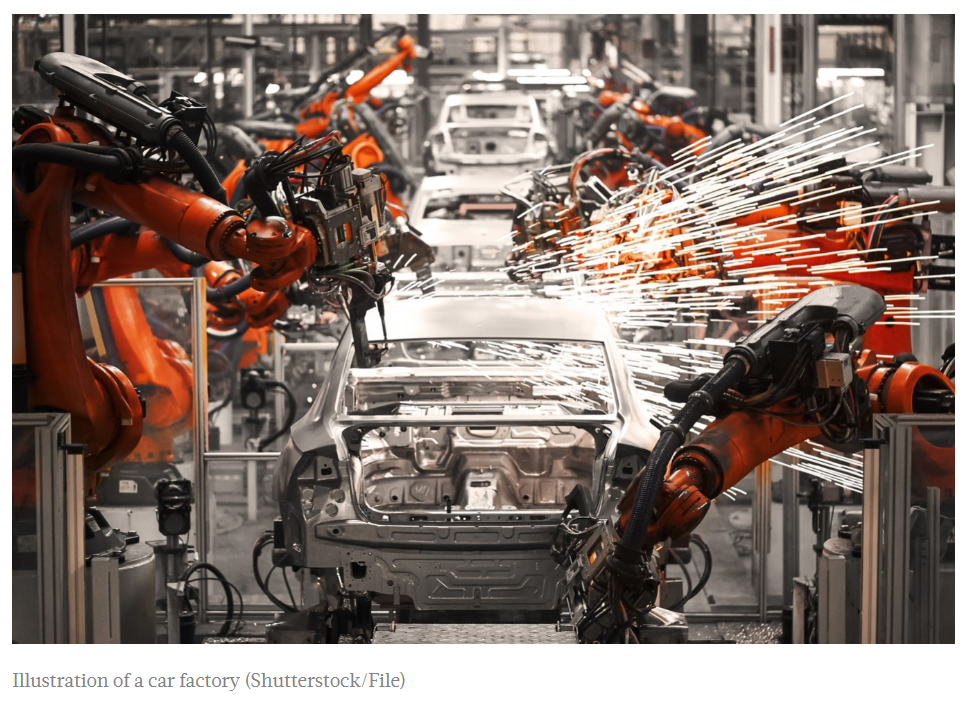Indonesian auto industry remains attractive: Fitch Solutions
The Indonesian automotive industry remains attractive for current and future investment in the region with low labor costs and favorable production growth, Fitch Solutions has stated.
According to Fitch Solutions Autos Production Risk/Reward Index (RRI), the low cost of labor remains Indonesia’s main key strength, reflected in the average wages score of 83.9 out of a possible 100.
In general, Indonesia’s score has slightly increased to 58.4 from 54.1 in the previous quarter, making it the eighth-most attractive country for automakers in the region and 23rd worldwide.
“This means that the country still ranks in the top-10 most attractive destinations for automakers to begin or maintain vehicle manufacturing operations in the Asian region and 23rd globally,” Fitch Solutions stated in its commentary published on May 22.
Car sales have been severely hit by the COVID-19 pandemic, falling drastically by 90 percent year-on-year (yoy) to 7,871 cars in April, the worst decline in decades, according to the Association of Indonesian Automakers (Gaikindo).
However, Fitch Solutions research shows that Indonesia still provides attractive growth opportunities for new and existing automakers, scoring 73.2 out of 100 on its vehicle production growth indicator based on the firm’s five-year average forecast.
The score is higher than the Asia average regional score of 50.5 on the same indicator.
Kukuh Kumara, Gaikindo secretary general, said that Indonesia was attractive because 1.5 million autoworkers in the country qualified as skilled workers, promising productivity at a lower input cost.
“We remain attractive and this is especially true if we talk about ASEAN [the Association of Southeast Asian Nations],” Kukuh told The Jakarta Post in a phone interview on Wednesday.
The minimum monthly wage for autoworkers in Jakarta has increased by 9.6 percent to Rp 5.4 million (US$367.10) this year from 2019, as stipulated in Gubernatorial Regulation No. 10/2020. It is higher than Jakarta’s provincial minimum wage of Rp 4.3 million.
With automakers shutting factories and furloughing employees, Gaikindo has slashed its domestic car sales target accordingly by 40 percent to 600,000 cars.
It has also lowered its export target by more than half to 175,000 cars from between 350,000 and 400,000 cars.
Kukuh also warned that the auto industry stakeholders still had to pay attention to the entire supply chain for the continuation of the industry amid declining sales caused by COVID-19.
“The dealers and distributors have to operate, otherwise we’ll keep producing but cannot sell any,” he said.
Fitch Solutions also highlights that logistics, operational and political risks still pose challenges for automakers, as Indonesia’s score for each indicator is well below its peers in the region.
Indonesia is noted to have higher logistics risk compared with other countries in the region, as well as suffering from an uncertain political environment as a result of the presence of separatist groups “that weigh on the government’s control of the country’s territory”, its research reads.
Automaker PT Toyota Motor Manufacturing Indonesia director of administration, corporate and external relations Bob Azam confirmed that high logistics costs were an issue for automakers.
“Logistics is indeed our issue for the foreseeable future, but with the government’s aggressiveness in developing infrastructure, ports, this logistics issue will be resolved step by step,” he said.
Logistics account for 25 percent of the total production costs in Indonesia, higher than the average 10 percent to 15 percent in Malaysia, according to government data. In the World Bank’s 2018 Logistics Performance Index, Indonesia ranked 46th of 160 countries, behind neighboring Singapore, which ranked seventh.
Bob also argued that while the current Indonesian auto workers’ wages were competitive compared with those of neighboring countries, they might eventually surpass those of other countries with the annual increases to match inflation and economic growth.
“If we keep holding on to this calculation, maybe within five years the wages will surpass those of the other countries. This will be a factor of consideration for investment,” he said.
Meanwhile, for the recovery from the current economic downturn, he said that the main challenge was to revive consumer purchasing power and the financial sector, as around 70 percent car buyers depend on financing.
Source: https://www.thejakartapost.com/news/2020/05/27/indonesian-auto-industry-remains-attractive-fitch-solutions.html


 English
English




